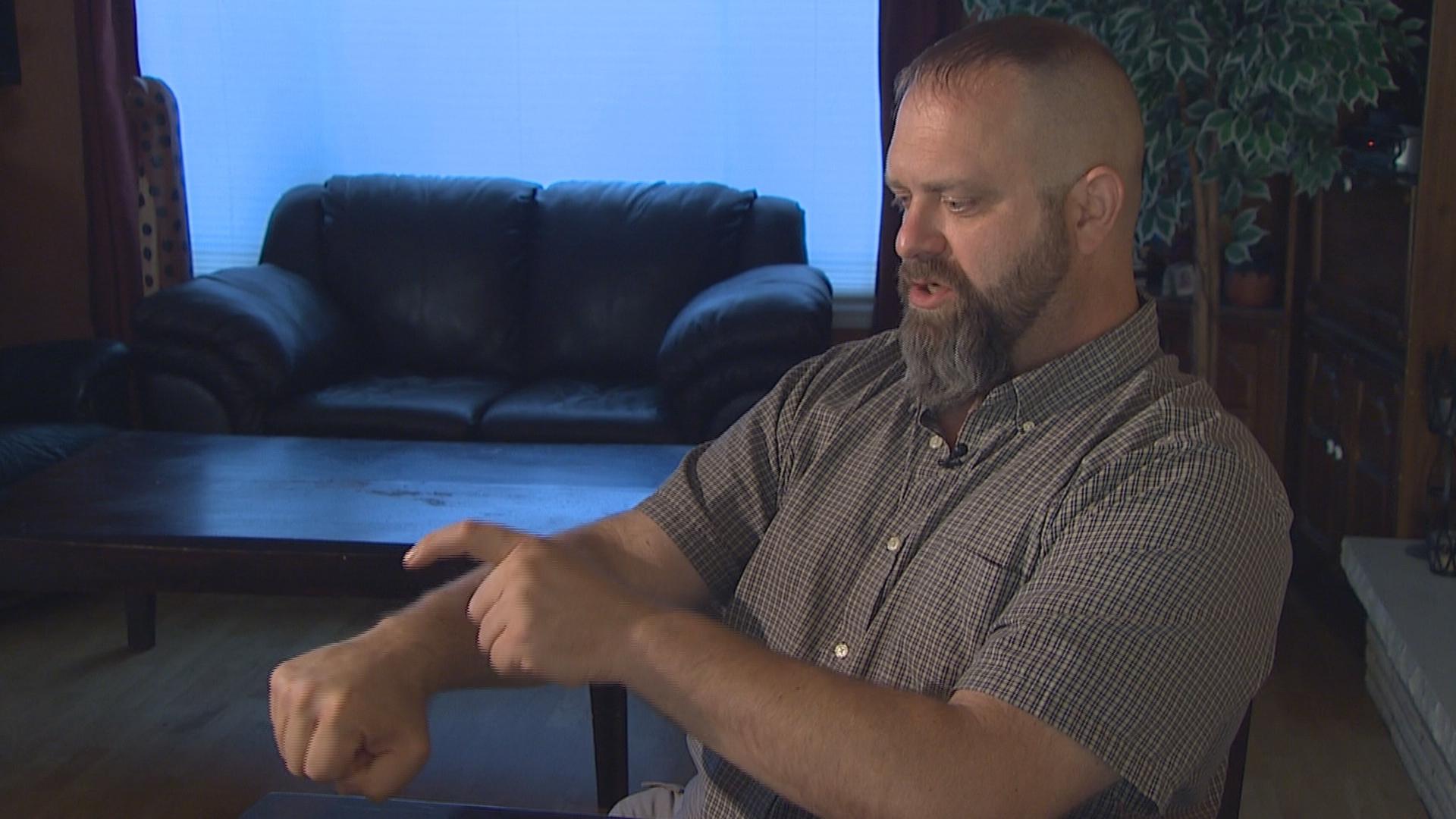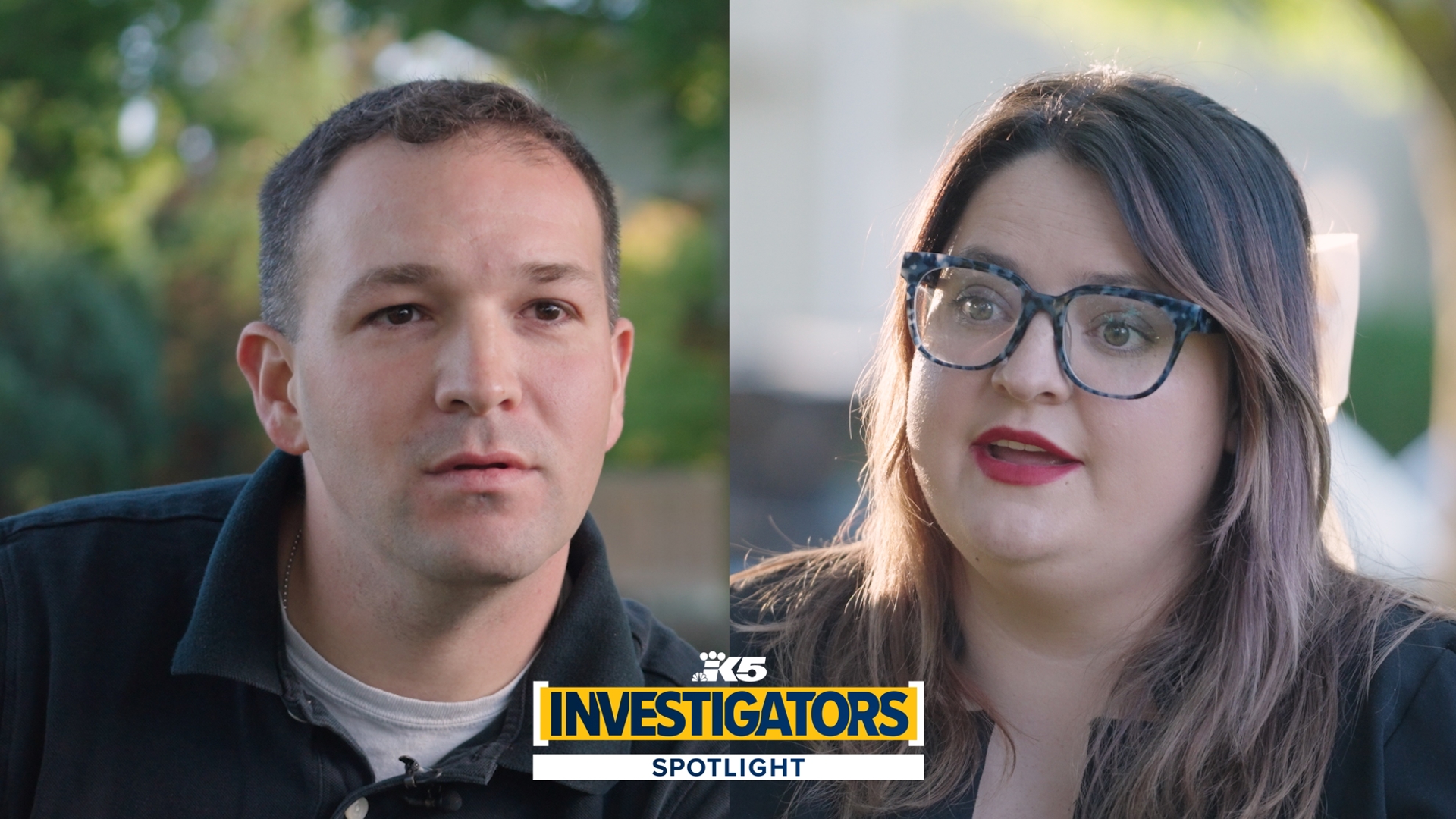A veteran worker at the Hanford Site says he was harassed, isolated and reassigned to cleaning tasks after he made repeated attempts to bring attention to safety problems in the lab where he works.
“Retaliation and harassment is very, very real at Hanford and that’s a fact. I lived it and I’m living it right now,” said Dave Lee, an instrument technician assigned to the 222-S Lab at Hanford. “I’m cleaning closets and I’m replacing filters and if that’s not degrading and retaliatory, explain to me what is.”
The 222 S Lab is a 70,000 square foot facility operated by the U.S. Department of Energy’s contractor, Washington River Protection Solutions (WRPS). Work in the lab consists of analyzing samples of lethal radioactive nuclear waste taken from underground storage tanks.
Technicians also analyze vapors captured from the headspaces of the tanks. The vapors contain a mix of poisonous chemicals that were used to extract plutonium from spent fuel rods. Production took place at Hanford from the 1940s through the 1980s to support the country’s nuclear weapons program. Since then, work at the site has been exclusively dedicated to cleanup – one of biggest environmental remediation projects in the world.
Since last November, Lee says he’s repeatedly brought up safety concerns related to a piece of machinery used to analyze vapors. He noticed oil leaking from a Gas Chromatograph/Mass Spectrometer (GC-MS) instrument. A GC-MC machine measures the presence of selected chemicals in materials fed into it.
His research of the GC-MC factory manuals found that oil in the GC-MC is contaminated with whatever is being tested. That means toxic vapors could be emanating from the oil, into the breathing space of lab workers, who don’t wear protective gloves or respiratory protection as WRPS has never required it.
According to the Clarus 560/600 MS Hardware Guide: “When using toxic samples, the mechanical pump oil is toxic waste….If you were running toxic samples, the oil is contaminated as toxic waste. Handle and dispose of waste oil appropriately.”
“I come to find out this roughing pump oil is part of the process stream (which means it’s in contact with contaminated substances),” said Lee. “I was mad (when I found out),”.
At one point the oil fell directly onto Lee’s hand.
“I broke out in a rash on my arms, my neck, my face,” said Lee.
He said his overall health has declined since working in the lab with leaking oil. “I can’t sleep at night. After my exposure I had a metallic taste in my mouth and I had a super bad headache….and I forget things a lot.”
According to a discrimination complaint filed against WRPS with the U.S. Department of Labor Occupational Safety and Health Administration, Lee reported his concerns to many people, including his direct manager and other managers present in lab meetings, the maintenance manager of the lab, the site wide manager of the lab, a field representative from the Defense Facilities Nuclear Safety Board, members of the Department of Energy’s Employee Concerns Council, the Employee Concerns Council manager, in addition to writing up a Problem Evaluation Request (PER) about inadequate venting in the lab. PERs are designed to formally document a concern that is supposed to be addressed by the company.
Lee said after all that, nothing changed. Managers allegedly told him not to worry about it.
“’This is common practice, Dave. You’re fine,’” was the alleged response.
That led to a more dramatic action. On May 2, Lee issued what is called a stop work action at the lab. All Hanford workers have the right to shut work down if they feel the conditions are unsafe. Lee wanted no work to take place with the oil until it was fully analyzed to ascertain if it were indeed hazardous. The next day, WRPS human resources asked for his badge. He was sent home, placed on “investigative removal” for allegations of “extremely serious misconduct”.
The allegation was that Lee picked up a gun publication that was sitting on a chair in his boss’s office prior to a pre-job meeting on May 2. One worker allegedly accused Lee of pointing to pictures of firearms in the publication and making intimidating gestures.
“To tell someone that they’ve engaged in extremely serious misconduct for picking up a supervisor’s magazine and setting it aside on the only chair available to sit it in the room is almost laughable,” said Nikolas Peterson, Lee’s attorney from the nonprofit advocacy group Hanford Challenge.
After five days at home, Lee was allowed to come back to work, with the allegations about the publication unsubstantiated. Also while he was away, Lee said work was performed with the oil, thereby skirting his stop work action. He said he returned to find a hostile atmosphere.
“Everything you say, everything you do, every move you make is watched,” said Lee. “What they wanted to do is suppress me into the corner so I’m not bringing up other issues.”
According to a newly released report from the Government Accountability Office, which is the investigative arm of Congress, Dave Lee’s experience isn’t isolated. The investigators found the U.S. Department of Energy routinely allows “unlawful retaliation” perpetrated by its contractors at sites such as Hanford.
“It’s clear the Department of Energy contractors are going to go to amazing lengths to send a signal to their employees that when you blow the whistle it is going to be the end of your career,” said Sen. Ron Wyden (D-OR) in response to the GAO findings.
“The Dept. of Energy has utterly and completely failed to protect whistleblowers from retaliation,” said Sen. Ed Markey (D-MA). “The currency of whistleblowers is the truth, but at the Dept. of Energy whistleblowers are paid with harassment and retaliation.”
The Department of Energy submitted a statement to KING regarding the report:
The Department of Energy recognizes that sustaining a healthy safety culture is a continuous endeavor. That is why we have taken deliberate steps to ensure compliance with the Whistleblower Protection Enhancement Act and have undertaken to emphasize the importance of safety culture across the Department’s leadership. We have also undertaken to clarify our regulations to provide for the possibility of assessing civil penalties against contractors for retaliating against their employees who raise nuclear safety concerns.
DOE agrees with the GAO’s recommendations to build on this progress, including by strengthening the Employee Concerns Program, reviewing and revising our Integrated Safety Management Policy, and continuing to foster a work environment that encourages open communication, a questioning attitude and an organizational culture that promotes the free expression of safety concerns by our workforce.
Pattern at Hanford
Hanford has been embroiled in high-profile whistleblower retaliation cases in recent years. In 2015, Department of Energy contractor URS agreed to pay Walt Tamosaitis, a research and technology manager at Hanford, $4.1 million for allegedly retaliating against him for bringing safety concerns to light.
In 2014 URS fired Donna Busche, its manager of environmental and nuclear safety at Hanford, after she brought up repeated concerns. Since then URS has settled with Busche for an undisclosed amount.
“If you’re sending a message to the workforce that you need to look the other way and be quiet at a nuclear facility, that’s a recipe for a disaster,” said Peterson. “We need individuals who are on the ground working at Hanford that see safety, health, and environmental concerns to not only feel free to raise those concerns, but encouraged to raise those concerns so that we don’t have a bad day out at Hanford that could result in a bad day for a three state area.”
On Thursday, WRPS sent KING 5 a statement for this story. The company did not answer any of the questions submitted but wrote the following in an email:
Washington River Protection Solutions (WRPS) takes employee concerns very seriously. We strive to maintain a work environment where raising concerns is not only expected, but encouraged.
Free and open communication is an important component of a safety-conscious workplace and a strong nuclear safety culture. WRPS employees have the right and the responsibility to raise concerns without fear of harassment, intimidation or reprisal.
WRPS employees have a number of avenues by which to raise concerns. These avenues include speaking with a manager, a human resources representative, a union safety steward or other subject matter expert. There is also an established Employee Concerns Program, a number of employee-based safety councils, a system for documenting potential issues and their resolution, a formal Differing Professional Opinion process, an Alternative Dispute Resolution Service and other options. If an employee has a concern, there are avenues that offer confidentiality and anonymity.
By providing these options, WRPS continually strives to create a work environment where employees feel comfortable raising concerns and have the confidence to do so.
Dave Lee is still employed by WRPS. It’s unknown when the Department of Labor will rule on Lee’s complaint. In the meantime, Lee said he will continue to speak up when he sees hazardous conditions at the jobsite.
“People are scared. They aren’t coming forward. But I started this and I was raised that if you start something you finish it, period. And you’re not wrong if you do the right thing,” said Lee.
-- Follow Susannah Frame on Twitter: @SFrameK5.


